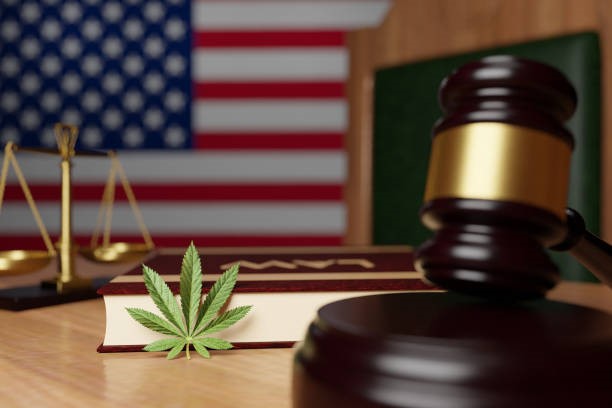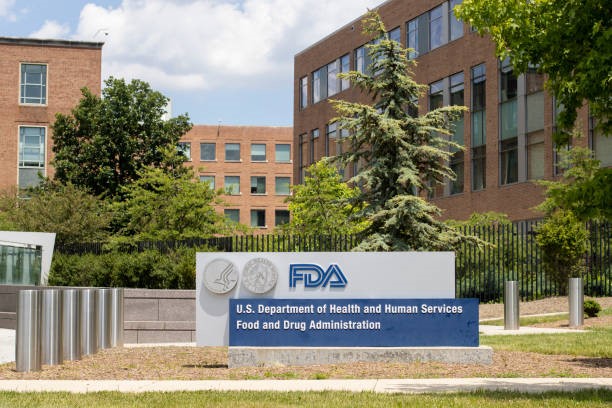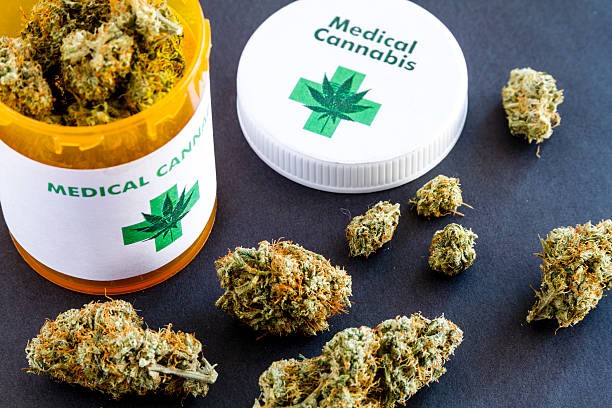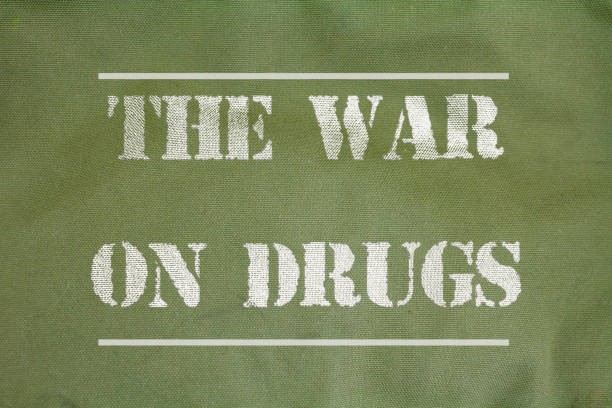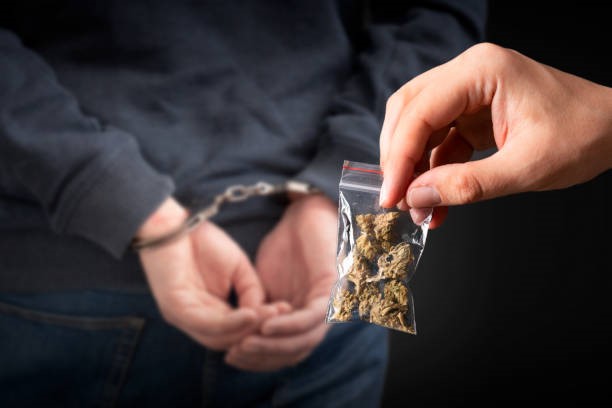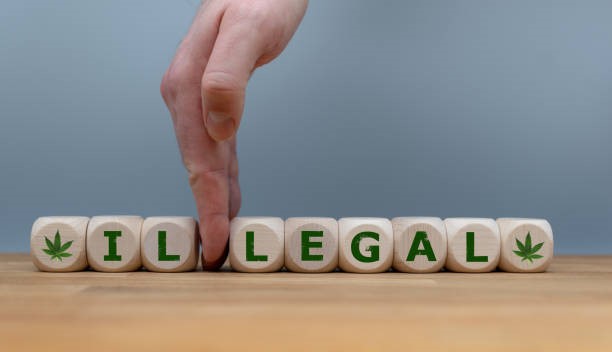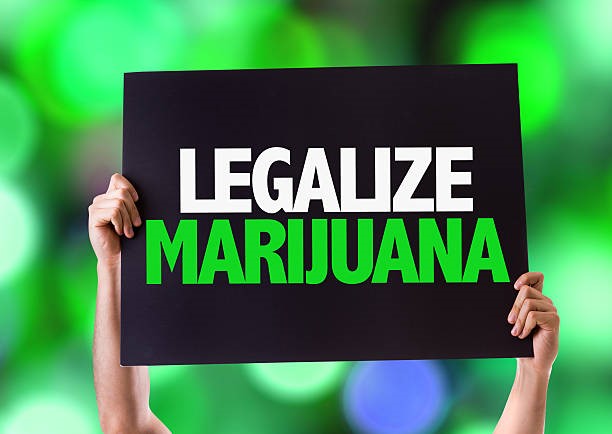Exploring the U.S. drug scheduling system, particularly the potential marijuana rescheduling from Schedule I to Schedule III, offers insights into evolving drug policy in the United States.
Governed by the Controlled Substances Act (CSA), this system classifies substances based on their abuse potential and medical applications. Currently, marijuana resides in Schedule I, sparking debates on its scientific validity and societal impacts.
Recent recommendations from the U.S. Department of Health and Human Services (HHS), driven by President Joe Biden’s marijuana directive, signal a pivotal moment in the conversation about federal cannabis laws reform.
These suggestions have prompted discussions within the Drug Enforcement Administration (DEA) regarding cannabis reform and potential Controlled Substances Act (CSA) changes.
This exploration also considers broader implications, from the Fentanyl epidemic to opportunities in the marijuana industry. The prospect of reclassification and the FDA’s marijuana review for medical uses underscore the multifaceted nature of this shift.
Examining the transition from Cannabis Schedule I to Cannabis Schedule III goes beyond mere legal reclassification, potentially ushering in transformative changes in Federal cannabis laws reform.
As we analyze these developments, we illuminate the complex interplay between policy, science, and societal justice, shaping the future of drug policy in the United States.
Understanding Drug Scheduling
The U.S. Drug Scheduling System
The U.S. drug Scheduling System, governed by the Controlled Substances Act (CSA), categorizes substances into schedules based on their potential for abuse and recognized medical use.
Schedule I, the strictest category, includes substances like marijuana, which is considered highly prone to abuse and without acknowledged medical value. This classification has significant legal and societal consequences, affecting regulation, research, and public perception.
Historical Placement of Marijuana in Schedule I
The Historical Context:
The historical inclusion of marijuana in Schedule I is deeply rooted in a larger societal narrative, closely connected to the shortcomings of the War on Drugs. This classification carries historical implications spanning decades, influencing the legal status of the cannabis plant and countless lives.
The Impact of Schedule I Classification:
Categorizing marijuana in Schedule I has extensive consequences. It hampers scientific exploration of its potential benefits and results in racial disparities in law enforcement.
This classification impedes efforts to comprehend the true medical potential of cannabis and exacerbates inequalities within the criminal justice system.
The HHS Recommendation: A Turning Point
The Recommendation
The recent HHS recommendation advocating the rescheduling of marijuana from Schedule I to Schedule III is crucial in ongoing drug policy reform in the United States.
This recommendation holds profound significance as it represents a significant government agency recognizing the misclassification of cannabis as a high-risk substance with no medicinal value.
The proposal follows a thorough year-long investigation, making it one of the most comprehensive reviews conducted by the federal government regarding drug scheduling.
Read more: HHS wants to reclassify marijuana
Potential Implications of HHS Recommendation
1. Opening the Door to Critical Discussions
The HHS recommendation ushers in an essential phase of open dialogue and debate concerning drug policy reform in the United States.
It provides an opportunity to address pressing issues such as racial disparities in law enforcement, the failures of the War on Drugs, and the potential undue influence of private interests in shaping drug laws.
This development catalyzes broader societal conversations that go beyond drug scheduling.
2. Addressing Racial Disparities, Failed Drug Policies, and Private Interests:
The recommendation’s effects go beyond just reclassifying marijuana. It paves the way for dealing with long-standing racial inequalities in marijuana enforcement and imprisonment.
It aims to correct the harm caused by flawed drug policies and looks into the influence of private prison companies on drug regulations.
This important decision questions why substances like marijuana, psilocybin, and MDMA are in Schedule I while cocaine, Fentanyl, Methamphetamine, Oxycodone, and Amphetamine are in Schedule II. As we have these discussions, the possibility of significant changes in drug policies becomes more real.
The Role of the Biden Administration
President Joe Biden’s Stance on Marijuana
President Joe Biden’s position on marijuana has played a pivotal role in shaping current drug scheduling in the United States. During his campaign, Biden pledged to explore the possibility of marijuana rescheduling.
His stance on marijuana legalization is nuanced, stopping short of endorsing full legalization. Instead, he has expressed support for decriminalization and the federal legalization of medical marijuana.
This nuanced stance has set the tone for ongoing discussions and policy changes related to marijuana.
Actions by the Biden Administration
As President, Joe Biden has taken significant steps toward addressing marijuana policy reform.
His administration initiated a comprehensive process to review the scheduling of marijuana under federal law, ultimately leading to the recent HHS recommendation for rescheduling.
This directive from the Biden Administration underscores their commitment to evaluating and potentially reforming outdated drug scheduling policies.
President Biden’s role in initiating this review process has implications that extend far beyond marijuana policy and reflect a broader movement toward cannabis reform at the federal level.
Read more: US Health Officials Urge Moving Pot to Lower-Risk Tier
Racial Disparity and the Failed War on Drugs
Racial Disparities in Marijuana Enforcement and Incarceration
Racial disparities have been troubling in marijuana enforcement and incarceration in the United States.
A closer look at this stark racial divide reveals an unsettling reality where people of color, particularly African Americans, have been disproportionately affected by marijuana-related arrests and imprisonment despite similar usage rates across racial groups.
This glaring inequity has fueled discussions about deeply rooted racial disparities within the criminal justice system and the urgent need for reform in drug scheduling and cannabis policies.
Failures of the War on Drugs and Marijuana
The war on drugs, especially when it comes to marijuana, hasn’t been very effective. It has caused lasting problems for people and communities in the United States. Instead of helping, it focused on punishing people and using tough law enforcement.
This led to many people getting arrested and convicted for non-violent drug offenses. Sadly, it’s often the marginalized communities that suffer the most from these consequences.These policies don’t just affect individual lives.
They hurt families and entire neighborhoods. Critics say that by punishing people so severely, we’re not really getting to the root of why people use drugs or become addicted. Instead, it often keeps people stuck in poverty and without a voice in society.
The discussion about changing marijuana’s classification and making bigger changes to drug policies shines a light on these big problems in society. It shows that we need to find fairer and more practical ways to deal with drug issues.
Private Prison Lobbying and Harsher Penalties
Influence of Private Prison Companies on Drug Policies
The influence of private interests in shaping drug laws in the United States has raised significant concerns. Private prison companies have advocated for harsher drug penalties and perpetuated the War on Drugs.
These companies have a financial stake in the continued incarceration of individuals convicted of drug offenses, ensuring a steady stream of inmates.
This has raised questions about the motivations behind drug scheduling and the extent to which private interests have influenced drug policies.
As the debate over marijuana rescheduling gains momentum, examining the role of private prison companies in shaping drug laws becomes crucial in understanding the broader landscape of drug policy reform.
Examples and Evidence of Private Prison Lobbying
Concrete examples and evidence of private prison companies’ influence on drug policies provide insight into the extent of their impact.
Private prison companies have actively worked to maintain and expand the prison population through lobbying, campaign contributions, and advocacy for punitive drug laws.
This includes supporting legislation that imposes harsher penalties for drug offenses, often resulting in mandatory minimum sentences and longer prison terms.
Examining specific instances of their involvement helps shed light on the magnitude of their influence and underscores the need for transparency and reform in drug policy decision-making.
The Human Cost
Incarceration Statistics for Marijuana-Related Offenses
To truly grasp the magnitude of the issue, it’s essential to highlight the stark numbers associated with marijuana-related incarcerations. The scale of individuals behind bars due to marijuana offenses is a powerful testament to the current state of drug policies.
These statistics underscore the urgency for reform and the need to address the human cost of such incarcerations.
Racial Demographics Impacting Incarceration Rates
Delving into race statistics concerning marijuana arrests and convictions provides a deeper understanding of the inherent disparities within the criminal justice system.
Examining the disproportionate impact on marginalized communities sheds light on the systemic issues associated with drug scheduling and enforcement, emphasizing the pressing need for equitable reform.
Comparing Schedule I and Schedule II Drugs
Contrast Between Schedule I and Schedule II Drugs
Drawing a sharp contrast between substances classified as Schedule I and those in Schedule II prompts critical questions about the logic and consistency of the scheduling system.
While marijuana, with potential medicinal value, remains in Schedule I, Schedule II includes highly addictive and potentially dangerous substances. This stark contrast highlights the need for a comprehensive review of drug scheduling and the urgency of reform.
The Ongoing Fentanyl Epidemic
The constant coverage of the Fentanyl epidemic underscores the pressing need for drug scheduling reform. The current scheduling system’s inability to address emerging and hazardous substances like Fentanyl exemplifies its shortcomings.
This epidemic is a stark reminder of the necessity to adapt drug policies to evolving challenges, making drug scheduling reform a matter of life and death.
Implications of Rescheduling to Schedule III
Rescheduling marijuana from Schedule I to Schedule III holds significant implications beyond legal reclassification. Assessing the pros and cons of this change, including its effects on taxation, research opportunities, and the cannabis industry, provides valuable insights into the evolving legal landscape.
For the marijuana industry, such rescheduling could usher in transformative shifts, offering new prospects for businesses, increased investments, product expansion, and broader societal acceptance.
Furthermore, it could catalyze advancements in marijuana-related research by reducing regulatory barriers, potentially uncovering new medical applications and treatments.
The financial aspects, including taxation, may undergo alterations at federal and state levels, influencing government revenue and consumer prices.
This complex interplay underscores the importance of carefully considering the multifaceted consequences as we navigate the evolving marijuana regulation landscape in the United States.
The Future of Federal Cannabis Laws
The future of marijuana laws in the United States is a topic that affects everyday citizens like you and me. Recently, more and more states have been saying it’s okay to use marijuana for medical and even recreational reasons.
This has made the federal government think about changing its old rules, where marijuana was treated as a very bad drug in the same category as some of the most dangerous ones.
Now, something important has happened: a suggestion from the U.S. Department of Health and Human Services (HHS) to move marijuana to a different category called Schedule III.
This change shows that people are starting to realize that marijuana might have some medical benefits, which is different from what we used to think.
But what will happen next is a bit tricky. It depends on things like politics, what the public thinks, and how it might affect money. The way marijuana is treated by the government is also influenced by the big changes happening in the marijuana industry.
We can’t be sure exactly what will happen, but what’s clear is that things are changing. The talk about how we classify marijuana and the way state and federal laws are starting to match up mean that marijuana laws are in a state of change.
While full legalization everywhere isn’t guaranteed, it’s clear that things are shifting, and we should keep an eye on how it all unfolds because it’s something that impacts all of us.
Conclusion
The HHS’s recommendation to reschedule marijuana from Schedule I to Schedule III is a big step in changing U.S. drug policies. This is important because it corrects a long-standing mistake in classifying marijuana.
It starts a journey to make drug laws better. We must fix issues like unfair treatment for certain groups, problems from the War on Drugs, and money’s influence on drug laws. We also have to deal with the urgent issue of Fentanyl.
Furthermore, we will also consider the good and bad sides of changing drug schedules. While you are at it, do consult Wiser Wellness, they will steer you to affordable access to treatments that are overlooked by traditional medicine.
The marijuana industry is changing, and we’re also looking at more research and taxes. We’ll work on making federal and state cannabis laws matchup. President Joe Biden and the FDA are helping with this, making significant changes that will affect all of us.


